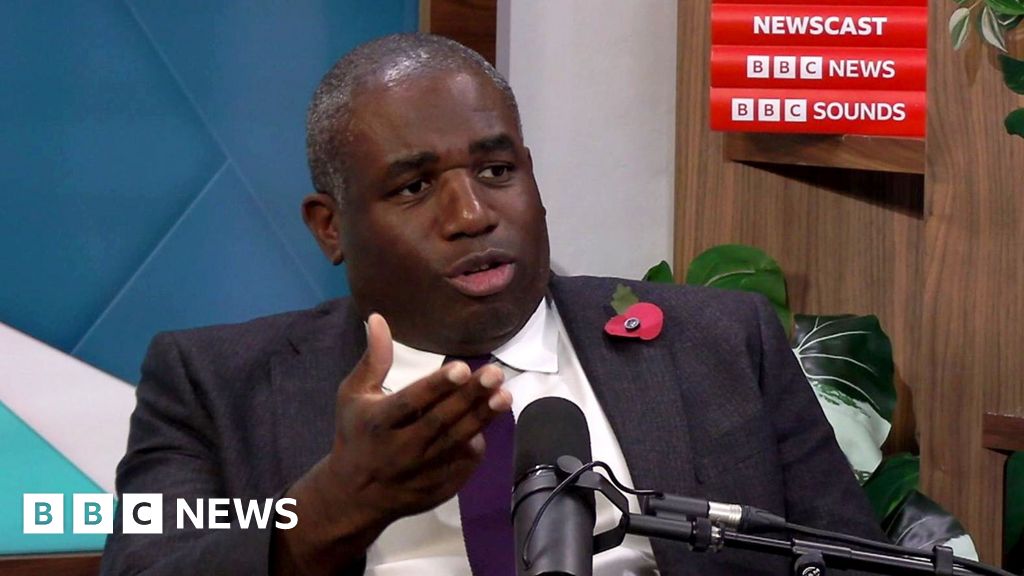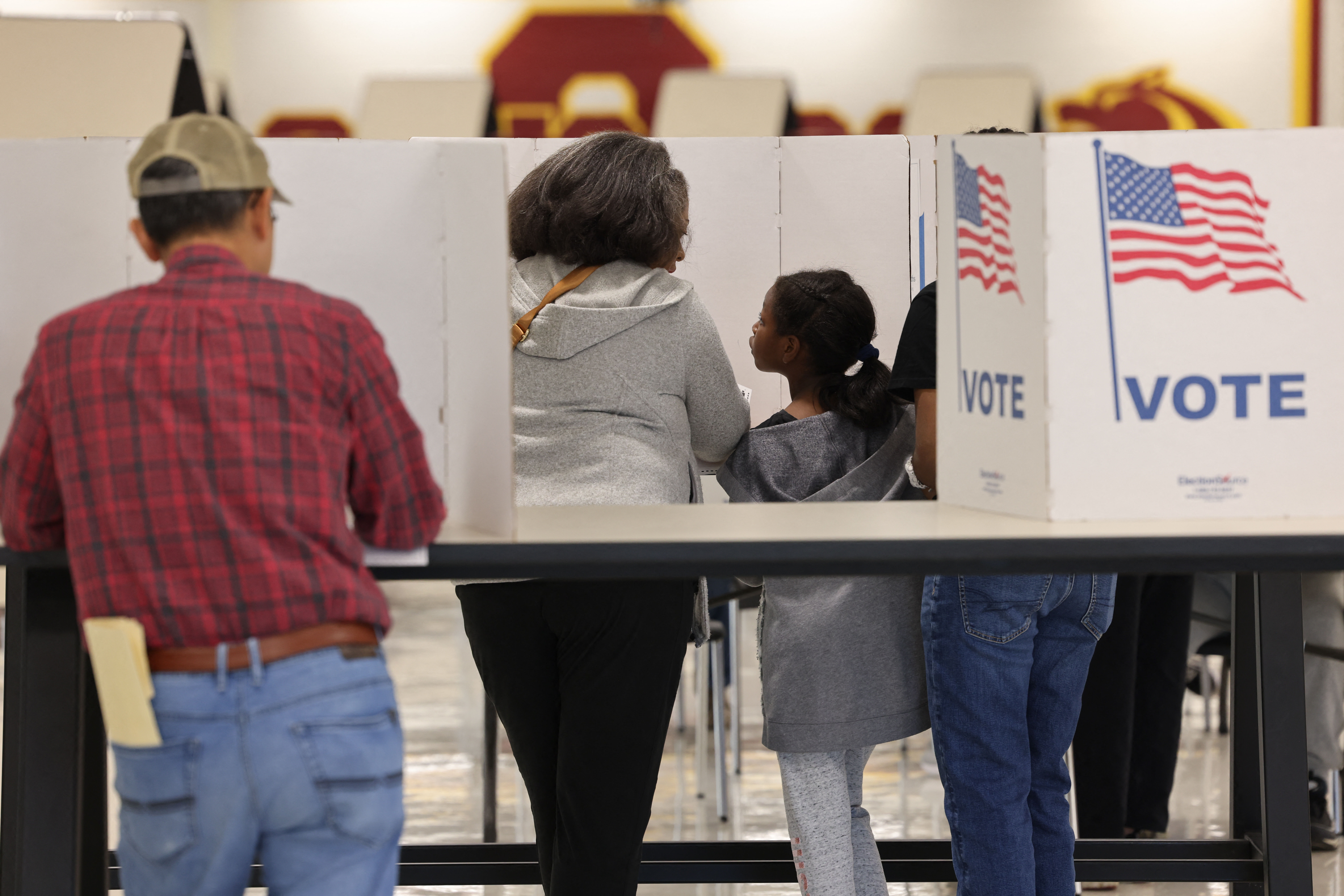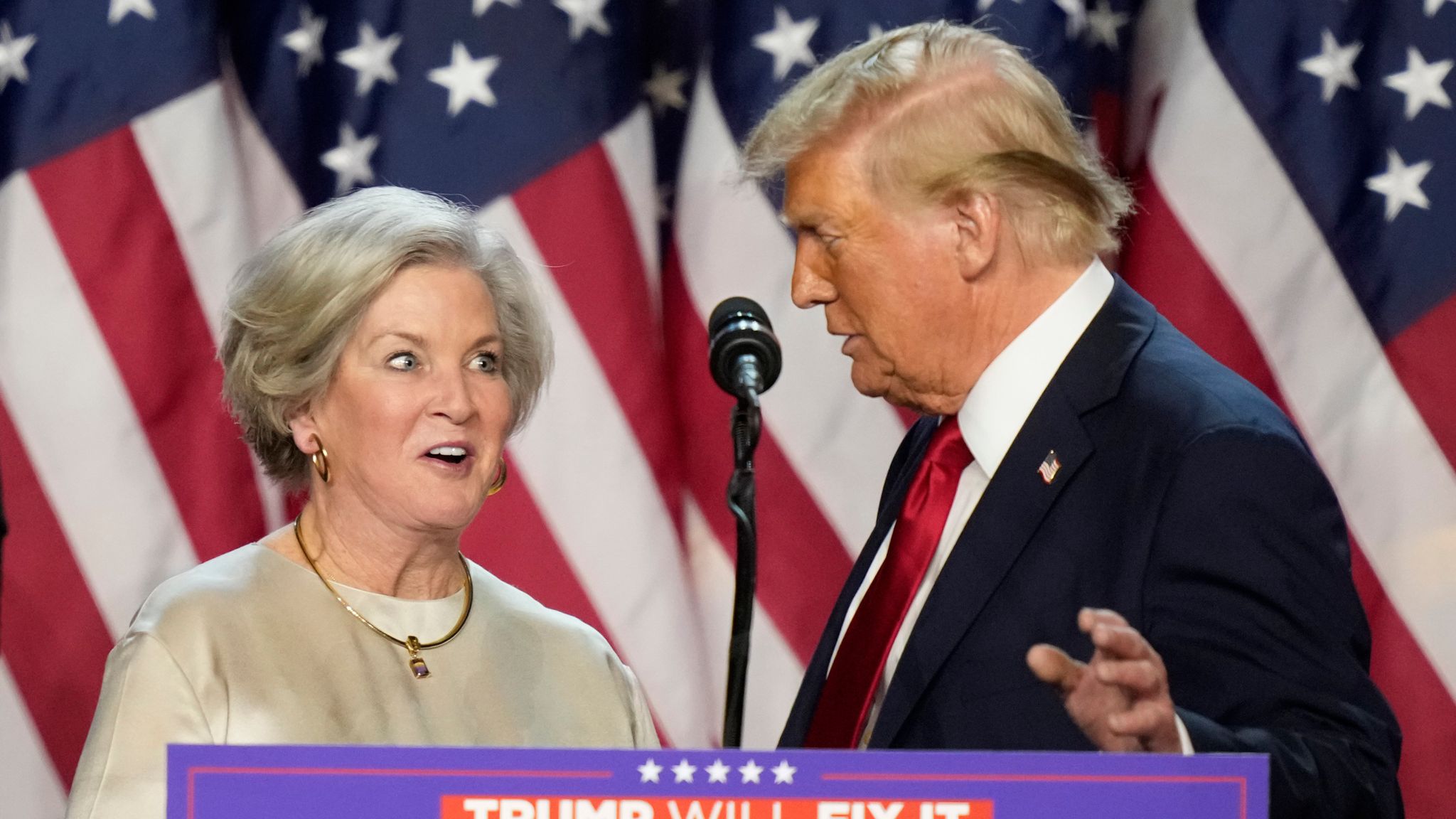- BlackVoter.Org
- Posts
- BLACKVOTER.ORG
BLACKVOTER.ORG

In Detroit, a surprising generational shift is unraveling in political attitudes among Black men, particularly as the 2024 election results roll in. Many younger Black men, historically aligned with the Democratic Party, are now finding Donald Trump's economic promises compelling.
In contrast, their older counterparts, who leaned towards supporting Kamala Harris, express understanding of this shift, albeit with disappointment over her loss.
Younger voters like Christopher Evans seek change, yearning for different leadership after years under Biden and Harris, while older men like Larry Robinson remain hopeful and pragmatic, asserting that individual effort outweighs political party loyalty.
As Black voters reassess their priorities amid rising economic concerns, Trump's appeal has notably surged among young African American men, reflecting a sense of disillusionment with the Democratic agenda. The article paints a rich picture of a community at a crossroads, balancing hope, challenges, and the quest for authenticity in political representation.

In a tightly contested race, former President Trump has pulled ahead of Vice President Harris by 2 points in a recent Pennsylvania poll, garnering 49% support from likely voters compared to Harris’s 47%. The InsiderAdvantage survey indicates Trump is gaining traction, particularly among independent, senior, and African American voters, while Harris’s support among African American males appears to be waning.
With just under a month until Election Day, both candidates are vying for Pennsylvania's 19 electoral votes, a crucial prize in this election. Previous polls have shown fluctuating leads, but excitement remains high, especially among Democrats.
The race promises to be thrilling and razor-thin, as turnout and voter enthusiasm will play key roles in determining the winner in this pivotal state.

In "The ‘Brain Drain’ in American Politics," The Atlantic’s Stephanie Bai revisits a critical issue plaguing U.S.
governance: the alarming shortage of competent politicians. Drawing on insights from David A.
Graham, whose 2015 article highlighted the mediocrity in political leadership, Bai explores how the landscape has deteriorated further, particularly since Donald Trump's rise. With a staggering 84% of Americans believing in a leadership crisis, many disillusioned voters bemoan their lack of options.
Graham points out that a significant exodus of experienced policymakers has left a gap filled by figures lacking serious governance skills. He warns that while local leaders may offer hope for a more pragmatic political culture, hyper-partisanship often stifles their ascent.
This cycle of dissatisfaction and mediocrity raises pressing questions about the future of American political culture and the potential emergence of earnest leaders amid prevailing dysfunction.

In a surprising turn of events, Kamala Harris's campaign in the 2024 presidential election fell flat against Donald Trump, resulting in a significant loss. With Trump comfortably winning both the popular and Electoral College votes, Harris's shortcomings have been pinpointed.
A late campaign launch, lack of differentiation from President Biden, and lost support from key voter demographics like Black and Latino communities set the stage for her defeat. Voters expressed frustration over economic issues, worsened by inflation, while Harris struggled to distance herself from Biden’s unpopular policies.
Notably, the traditionally Democratic "blue wall" states, such as Michigan and Pennsylvania, fell to Trump, compelling Harris to face an uphill battle that ultimately became insurmountable. This election marks a historic moment, with Trump securing the largest margin for a Republican candidate in decades, as the dynamics of voter allegiance shift in unexpected ways.

In "The Dry Bones Have Risen Again," Matthew Ma analyzes the revival of Donald Trump amid shifting political dynamics in the U.S.
Following his electoral defeat in 2020, many believed Trump’s influence had waned. However, the 2024 election results tell a different story, showcasing his unexpected resurgence and the deep-rooted loyalty of his supporters.
The article highlights how changing voter sentiments, especially in the Rustbelt, underscore Trump's relevance in contemporary politics. While older generations grapple with biases against female leadership, younger voters demonstrate increased openness to electing women, setting the stage for potential female presidential candidates.
As America navigates these complex political waters, the question remains: Have the "dry bones" of political discourse truly come back to life, signifying a new era of leadership possibilities? Through this lens, Ma calls for reflection on the evolving landscape of gender and race in politics, signaling potential breakthroughs on the horizon.

In a striking political shift, a growing number of Black men are trading their traditional Democratic support for Donald Trump, with his backing among this demographic rising to 21%. Many cite disillusionment with how Democrats have engaged with their community, feeling pigeonholed by party expectations.
Former professional boxer Duke Tanner shared how Trump’s authenticity and policies, like the First Step Act, resonated with him, helping him during a challenging personal journey. Similarly, ex-NFL player Jack Brewer recounted losing friends over his Trump support, but now sees others recognizing the appeal of a more conservative platform.
This trend reflects a broader rejection of identity politics and liberal narratives, with Black men increasingly asserting their independence in political affiliation. As the 2024 election unfolds, Democrats are grappling with how to reconcile this shift and reconnect with an evolving electorate.

In a surprising twist, UK Foreign Secretary David Lammy has labeled his past criticisms of Donald Trump as “old news,” signaling a shift in tone following Trump's recent election victory. Previously, Lammy described Trump as a “tyrant” and a “neo-Nazi-sympathising sociopath,” but now he expresses optimism about finding common ground with the incoming president.
In an interview, Lammy praised Trump’s campaign and emphasized the importance of maintaining a strong US-UK relationship amid global challenges. He noted that many politicians have made critical remarks in the past, highlighting the difference between backbench opinions and the responsibilities of public office.
While acknowledging potential economic tensions due to Trump’s proposed tariffs, Lammy remains hopeful about securing beneficial trade arrangements. Overall, Lammy’s evolution reflects a pragmatic approach to diplomacy as he recognizes the complexities of international relations with a familiar figure in global politics.

In the aftermath of the 2024 presidential election, the Democratic Party is grappling with a significant drop in voter support compared to 2020. Kamala Harris garnered around 68 million votes—13 million fewer than Joe Biden—while Donald Trump surged ahead with nearly 72 million, close to his previous total.
This shift can be attributed to discontent among traditional Democratic voters, particularly within communities of color, who opted to stay home or choose third-party candidates like Jill Stein and Robert F. Kennedy Jr.
Notably, Trump made gains among young Black men and Latino voters, undermining the Democrats' expected support base. As fewer Americans participated in this election compared to the pandemic-driven turnout of 2020, analysts suggest that Democrats failed to motivate their core constituencies, leading to a substantial electoral setback.
Moving forward, the party must reevaluate its strategy to rekindle enthusiasm among its supporters.
In a surprising political shift, many Latino and Black voters, historically loyal to Democrats, are gravitating towards Donald Trump in the latest election. Voices from Arizona’s Latino community express mixed feelings, with some highlighting Trump's immigration stance and economic policies as key factors for their newfound support.
Adriana Zapata, a second-generation Mexican-American, observes her friends and family changing allegiances, while others acknowledge concerns over Trump's past rhetoric. Meanwhile, in Detroit, Black voters are also reevaluating their loyalty, driven by frustrations with Democrats' perceived lack of meaningful change.
Pastors and community leaders are encouraging voters to consider their economic interests over party affiliation. This evolving landscape reveals that voters are increasingly prioritizing individual experiences and economic concerns over traditional party lines, leaving both parties with crucial lessons to learn as they navigate this shifting terrain.

In the aftermath of the 2024 election, Vice President Kamala Harris's concession speech unveiled not only her political soul but also prompted a reflection on the state of American democracy. Amid her earnest acknowledgment of loss, she emphasized unwavering allegiance to the Constitution and hope for the future.
This moment revealed the human vulnerability politicians often shield behind curated personas, allowing glimpses into their true selves. Drawing on historic concessions from leaders like Barack Obama and Hillary Clinton, the article contrasts grace-filled messages with the toxic rhetoric that has surfaced in recent years, notably from Donald Trump.
As Harris calls upon the youth to persist in their fight for a better future, the author grapples with their own feelings of despair and the search for redemption in collective memory and communal faith. With courage, once again, the message resonates: even in the face of defeat, love and hope can guide us through the wilderness.

The Supreme Court has stepped into the contentious debate over Louisiana's congressional district map, fueled by accusations of racial gerrymandering. The case arose when Louisiana's Republican leadership attempted to redraw district lines while balancing federal requirements to include majority Black districts with the claims of other voters alleging constitutional discrimination.
A federal court struck down the state's new map, prompting officials to seek emergency relief from the Supreme Court to prevent electoral chaos before the upcoming elections. Interestingly, civil rights groups that initially championed the need for Black representation are now siding with the state, fearing that rigid federal oversight could stifle legislative flexibility.
As the court prepares for oral arguments, the outcome could reshape the future of redistricting in Louisiana—and beyond—amid ongoing battles over race and representation in the political arena. The final ruling is expected by June.

In the aftermath of the recent election, Maryland voters are taking a moment to digest the surprising results, especially Trump's return to power. Many feel a mix of shock and introspection, grappling with their choices.
Younger voters, like Henry Shippey, express existential dread, while long-time Trump supporters ponder economic prospects with cautious optimism. Voters share their disillusionment, reflecting on missed cues and shifting sentiments within their communities.
With emotions running high, some are focused on healing and supporting the leadership they didn't vote for, highlighting a desire for unity despite political divides. As the state embraces the change, voices from various backgrounds underscore the complexities of their experiences, pointing to a future that will require resilience and reflection.
In a climate marked by uncertainty, many are looking ahead, hoping to channel their efforts toward positive change in the coming years.

In a whirlwind of political maneuvering, Donald Trump has officially appointed Susie Wiles, his campaign manager, as White House chief of staff, marking a significant first step as president-elect. As states scramble to safeguard liberal policies against the impending Trump administration, the ripple effects are felt beyond politics.
Notably, singer Olivia Rodrigo has pulled her song from TikTok following its unauthorized use in a Trump campaign video—a bold statement amid the election hype. Meanwhile, Trump's campaign style remains as provocative as ever, openly critiquing Kamala Harris's time as vice president.
Voter frustrations are acknowledged, with former officials reflecting on how the Democrats' handling of international issues, particularly regarding Gaza and Ukraine, may have backfired, leaving them labeled as hypocrites. As the political landscape shifts, questions arise about Trump's second term decisions and the economic implications ahead, all while America watches closely.

